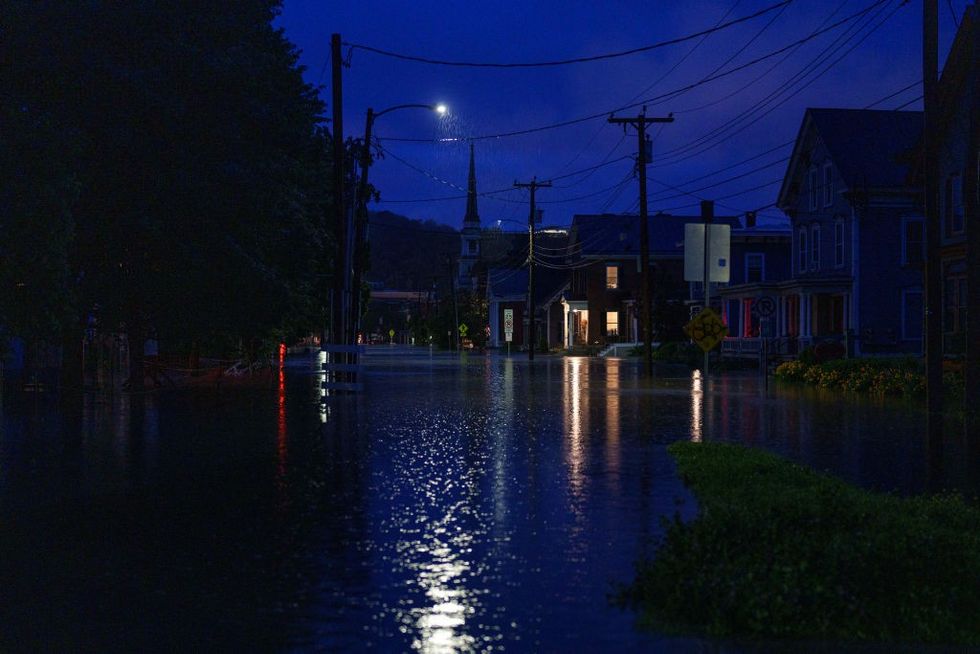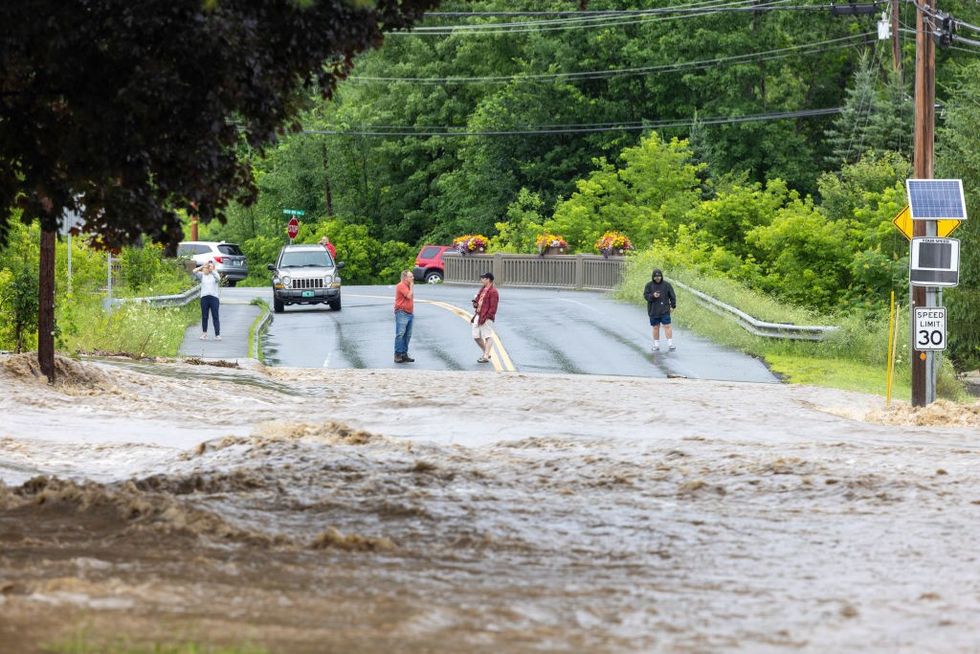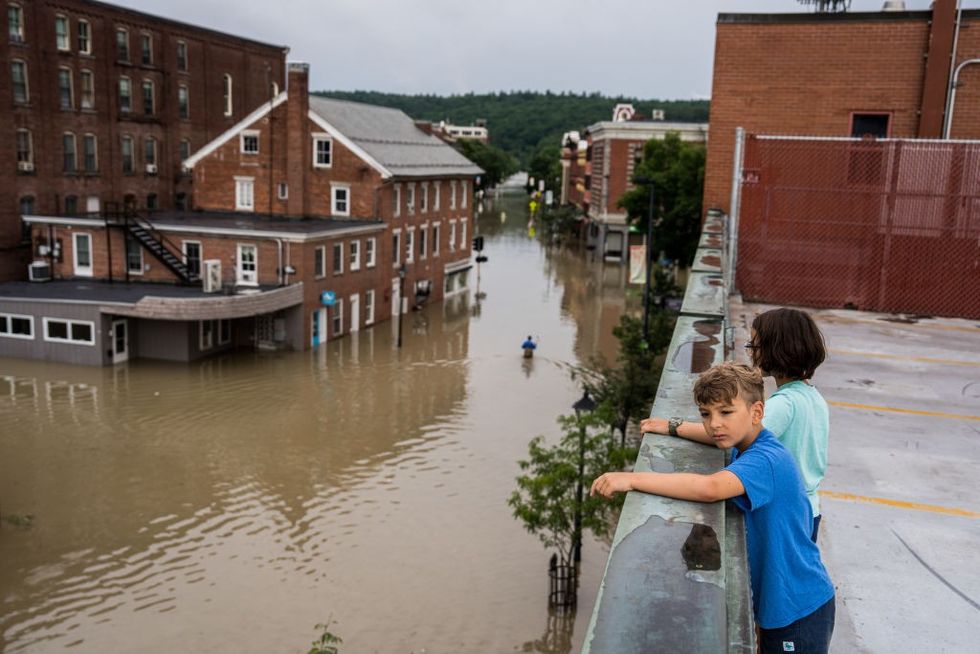November, 16 2021, 12:02pm EDT

New Analysis Finds Wasted Wind Energy, With Dirtier Forms of Energy Making Up the Difference
Economic and Environmental Benefits to Fixing the Problem
WASHINGTON
Wind is an abundant, clean, reliable, and low-cost source of electricity that we must continue developing to help address the climate crisis. Yet grid operators, who are responsible for balancing energy supply with demand, are forced to reduce the output from wind turbines and allow dirtier forms of energy like coal to make up the difference. A new fact sheet by the Union of Concerned Scientists (UCS), "Why Does Wind Energy Get Wasted?" explores the main causes of wind curtailment, which include insufficient transmission capacity, inflexible operation of coal-fired power plants, and a lack of storage. Understanding the causes and solutions for wind curtailment is essential for accelerating the transition to a cleaner, more affordable power system.
UCS commissioned analysis from Synapse Energy Economics to investigate wind curtailment in the Southwest Power Pool (SPP), a regional grid spanning from North Dakota to parts of Texas. The data is clear--there were no instances where wind energy supply could have exceeded demand. In fact, in all hours where wind was curtailed, other higher-cost, more-polluting resources were still online.
"Saying that wind curtailment happens due to 'wind oversupply' creates misunderstanding around the actual problem," says Joe Daniel, author of the fact sheet and manager of electricity markets at UCS. "It suggests that there is already too much wind energy on our energy grid when the opposite is true. We need more wind energy if we are to reduce emissions and fight climate change, which means we must also address the shortcomings in our system that cause it to be wasted."
Fixing the constraints that lead to curtailment could save customers tens of millions of dollars in electricity costs and reduce carbon pollution by millions of tons a year. Solutions include new transmission investments; operating coal more flexibly; and expanding energy storage projects.
"We could be avoiding significant amounts of wind curtailment," said Daniel, "by building more transmission to more effectively move renewable energy across the grid, by turning coal plants down or off so that renewables can get from the grid to the load, and by building storage to soak up any remaining renewable energy that cannot be used or exported. When wind is available, burning coal is always more expensive, so why waste wind?"
To learn more about wind curtailment, see Daniel's blog post "Mythbusting 'Wind Oversupply.'"
The Union of Concerned Scientists is the leading science-based nonprofit working for a healthy environment and a safer world. UCS combines independent scientific research and citizen action to develop innovative, practical solutions and to secure responsible changes in government policy, corporate practices, and consumer choices.
LATEST NEWS
'Epic Ocean Victory': Biden Permanently Bans Offshore Drilling Across 625 Million Acres
The authority President Joe Biden used could make it difficult for the incoming Trump administration to reverse the sweeping drilling ban.
Jan 06, 2025
Outgoing President Joe Biden on Monday moved to permanently ban offshore oil and gas drilling across more than 625 million acres of U.S. coastal territory, protecting swaths of the East Coast, the eastern Gulf of Mexico, the Pacific, and Alaska's Northern Bering Sea from fossil fuel exploitation just before President-elect Donald Trump is set to retake power.
Biden said in a statement that his decision "reflects what coastal communities, businesses, and beachgoers have known for a long time: that drilling off these coasts could cause irreversible damage to places we hold dear and is unnecessary to meet our nation's energy needs."
Invoking the 2010 Deepwater Horizon oil spill—the largest in U.S. history—Biden said future drilling off the coasts he's seeking to protect "is not worth the risks." Recent polling indicates that a majority of the American public agrees: 64% support action to shield U.S. coastlines from new offshore drilling, according to a 2024 survey conducted by Ipsos on behalf of the advocacy group Oceana.
"As the climate crisis continues to threaten communities across the country and we are transitioning to a clean energy economy," the president said Monday, "now is the time to protect these coasts for our children and grandchildren."
Biden's move comes just two weeks before Trump, a fervent champion of fossil fuel drilling, is set to be sworn in as the nation's 47th president. During his first term in office, Trump moved to expand offshore drilling to nearly all U.S. coastal waters before temporarily banning drilling off the coasts of Florida, Georgia, and South Carolina in 2020.
The far-right Project 2025 agenda crafted by members of Trump's first administration calls for a major increase in offshore fossil fuel drilling.
"Our treasured coastal communities are now safeguarded for future generations."
While Trump and his proposed Cabinet—which is stacked with allies of the oil and gas industry—is expected to aggressively roll back climate protections put in place by the Biden administration, the outgoing president's new executive action could have staying power.
In a fact sheet, the White House said Biden is using his authority under Section 12(a) of the Outer Continental Shelf Lands Act to "protect all U.S. Outer Continental Shelf areas off the East and West coasts, the eastern Gulf of Mexico, and additional portions of the Northern Bering Sea in Alaska from future oil and natural gas leasing." The withdrawals, according to the White House, "have no expiration date, and prohibit all future oil and natural gas leasing in the areas withdrawn."
As The Washington Postobserved, "a federal judge ruled in 2019 that such withdrawals cannot be undone without an act of Congress.
"Sen. Mike Lee (R-Utah), the new chairman of the Senate Energy and Natural Resources Committee, suggested that he would seek to overturn the decision using the Congressional Review Act, which allows lawmakers to nullify an executive action within 60 days of enactment with a simple majority vote," the Post added.
A spokesperson for Trump's transition team called Biden's action "disgraceful," adding, "Rest assured, Joe Biden will fail, and we will drill, baby, drill."
Predictably, the fossil fuel lobby also denounced Biden's executive action and implored lawmakers to "use every tool at their disposal to reverse this politically motivated decision."
While Biden has faced criticism from environmentalists throughout his four-year term for approving drilling permits in the face of intensifying climate chaos in the U.S. and around the world, advocates celebrated the president's latest executive action as a critical win.
"This is an epic ocean victory!" said Joseph Gordon, campaign director at Oceana. "Thank you, President Biden, for listening to the voices from coastal communities and contributing to the bipartisan tradition of protecting our coasts."
"Our coastlines are home to millions of Americans and support billions of dollars of economic activity that depend on a clean coast, abundant wildlife, and thriving fisheries," Gordon added. "Our treasured coastal communities are now safeguarded for future generations."
Keep ReadingShow Less
Vermont Sued for New Law Requiring Big Oil to Pay for Climate Damage
'For too long, giant fossil fuel companies have knowingly lit the match of climate disruption'
Jan 05, 2025
The US Chamber of Commerce and the American Petroleum Institute - representing the biggest fossil fuel companies in the world - are suing the State of Vermont over its new law requiring fossil fuel companies to pay a share of the state's damage caused by climate change.
The lawsuit, filed last Monday in the US District Court for the District of Vermont, asks a state court to prevent Vermont from enforcing the law passed last year. Vermont became the first state in the country to enact the law after it suffered over $1 billion in damages from catastrophic summer flooding and other extreme weather.
Vermont’s Attorney General’s Office said as of Friday, Jan. 3, they had not been served with the lawsuit.
The lawsuit argues that the U.S. Constitution precludes the act and that the federal Clean Air Act preempts state law. It also claims that the law violates domestic and foreign commerce clauses by discriminating “against the important interest of other states by targeting large energy companies located outside of Vermont.”
The Chamber and the American Petroleum Institute argue that the federal government is already addressing climate change. Because greenhouse gases come from billions of individual sources, they claim it has been impossible to measure “accurately and fairly” the impact of emissions from a particular entity in a specific location over decades.
“For too long, giant fossil fuel companies have knowingly lit the match of climate disruption without being required to do a thing to put out the fire,” Paul Burns, executive director of the Vermont Public Interest Research Group, said in a statement. “Finally, maybe for the first time anywhere, Vermont is going to hold the companies most responsible for climate-driven floods, fires and heat waves financially accountable for a fair share of the damages they’ve caused.”
The complaint is an essential legal test as more states consider holding fossil fuels liable for expensive global warming-intensified events like floods, fires, and more. Maryland and Massachusetts are among the states expected to pursue similar legislation, modeled after the federal law known as Superfund, in 2025.
New York Gov. Kathy Hochul (D) signed a similar climate bill into law - the Climate Change Superfund Act- on Dec. 26, pointing to the need to fund climate adaptation projects.



Keep ReadingShow Less
Renowned Washington Post Cartoonist Quits After Refusal to Publish Critique of Jeff Bezos
Jan 04, 2025
Pulitzer Prize-winning cartoonist Ann Telnaes has resigned from the Washington Post, where she has worked since 2008, due to what she claims was editorial interference.
Telnaes claimed an editor at the paper killed her draft cartoon depicting Washington Post owner Jeff Bezos and other billionaire tech and media chief executives groveling on their knees at the feet of President-elect Donald Trump.
Along with Bezos, Telnaes depicted Meta founder Mark Zuckerberg and OpenAI CEO Sam Altman bringing Trump sacks of cash. Los Angeles Times owner and billionaire Patrick Soon-Shiong was shown with a tube of lipstick.
In a post to her Substack, Telnaes wrote:
“I have had editorial feedback and productive conversations – and some differences – about cartoons I have submitted for publication, but in all that time, I’ve never had a cartoon killed because of who or what I chose to aim my pen at. Until now.”
"As an editorial cartoonist, my job is to hold powerful people and institutions accountable. For the first time, my editor prevented me from doing that critical job. So I have decided to leave the Post. I doubt my decision will cause much of a stir and that it will be dismissed because I’m just a cartoonist. But I will not stop holding truth to power through my cartooning because, as they say, “Democracy dies in darkness.”
Over three hundred thousand people canceled their digital subscriptions after Jeff Bezos decided to squash a Washington Post endorsement of Kamala Harris in October.
Keep ReadingShow Less
Most Popular


